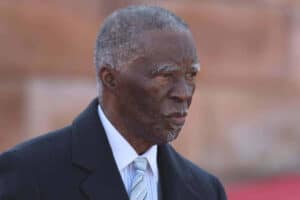SA is grappling with a range of issues, including an reckless president and a currency besmirched by junk status.

For most South Africans who qualified to vote in the first democratic general election in 1994, the long snaking queues, the tiresome shuffle to get just one step closer to the polling station, the thirst and the sun on their necks were minor irritations.
The mood among those waiting was buoyant, previously disenfranchised black voters speaking with something approaching shy candour with those who had been allowed the vote under the pernicious racial divisiveness of apartheid.
A sense of real, universal freedom permeated the air; the voiceless had suddenly been given a real platform to vent their feelings and the inalienable right to do just that. The chains had been broken.
And when the count was over and two short weeks later Nelson Mandela was officially sworn in as president, a nation rejoiced in its newfound sovereignty under a man accorded global stature as a statesman and leader.
We were proud to belong to Mzanzi and proud to be part of its citizenry, though even then it was evident that there was much to do to ensure the dream became a working reality.
For many, the founding dream has slowly withered into the sad truth that the 23 intervening years have brought little in terms of real grass-roots democracy.
We have an embattled – and some would argue reckless – president, a currency besmirched by junk status, an unemployment rate which grows inexorably year by year, a law and order establishment at war with itself, a ruling party riven by divisions, a self-propagating elite which has turned its back on the needs of the country in an orgy of graft and self-interest and a populace boiling with discontent.
If this is freedom, it is certainly not of the ilk envisaged by Madiba, Oliver Tambo or Walter Sisulu. We pray that their ethic will revive.
For more news your way, follow The Citizen on Facebook and Twitter.






